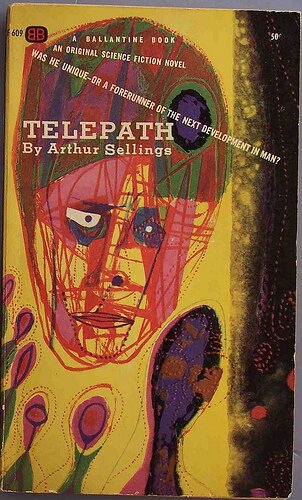Science fiction tends to assume that the solution to containing those with unusual powers is a statist solution. Let’s look at the fictional institutions that were created to control super-powered people like telepaths and how libertarians could handle the issue ethically.
This essay is Cross-posted from Hubpages.com
The Fictional, Statist Solutions to a “Telepath” Problem
For the mutants in the X-Men series, there is a Mutant Registration Act. Enforcement was via armed police and robot Sentinels created to round them those it can identify. What happens to those rounded up? There were at least several facilities that experimented on unwillingly kidnapped and detained mutants. Civil rights? What civil rights?
Unless you have a rich benefactor and are able to hide in plain sight separated willingly from society (Xavier’s School for the Gifted), you’re hiding on your own, in government custody or part of a criminal gang.
The DC Universe has A.R.G.U.S. to study mutants and D.E.O. to monitor and control them, whether they want to be or not. The Department of Metahuman Affairs is part of the D.E.O. Otherwise, you have the same government backed bureaucracy supervising and controlling telepaths and those with other powers while employing some to enforce the law against others with advanced abilities. And in DC and Marvel, you have some with spectacular abilities coerced or forced to enforce the law on others.

[The Babylon 5 Universe is one of the most detailed, logical analyses of how humans would cope with telepaths]
In the Babylon 5 universe, humans created the Psi Corps to deal with telepaths. The law said everyone must be tested. Many telepaths joined the Psi Corps to live a tightly regulated life for their literal protection from mundanes and have as much freedom as their society would allow.
Telepaths could either take drugs to suppress their abilities, but still risk being murdered and had their children taken away to be raised by the Psi Corps, ostensibly for their protection.
Or you were in violation of the law, hunted down by telepaths empowered and assigned for exactly that purpose. Violators were sent to concentration camps where many died, but the harsh conditions were designed to appease a majority that hated the different, push the reluctant into willingly joining the Corps, and provide a reason for Psi Corps members to obey the rules.

[The Institutes in In Conquest Born show theoretically voluntary organizations becoming exploitative over time due to concentration of power.]
For In Conquest Born telepathy is feared and hated by many, but the Azean government has Institutes that think it is the next stage of human evolution. So they study the genetics of telepathy, recruit and breed telepaths, and while seemingly benevolent, see their holy cause as more important than the rights or desires of any single individual. Individual telepaths working with the Institute see it as a higher cause as well as a place to not be different. It is mentioned that it is routine to kill children suspected of being telepaths, whether as a matter of law or custom depending on the world. There aren’t a lot of laws in that universe limiting telepaths because the Institutes find and contain most of them, essentially on their own planet in the Azean empire.
“The Hoodmaker” is a classic Phillip K. Dick story brought to life by the Amazon video series. Here, telepaths were rounded up and forced to live in ghettoes. The jobs they can hold are limited, but again, some are forced to work for the government to monitor and manipulate people. The “hoodmaker” is attempting to return people’s rights by making hoods that block telepathic scans. Telepaths themselves resent the limitations and involuntary experimentation and are ready to rise up.
In “The Demolished Man”, a classic science fiction novel by Alfred Bester, telepaths are a distrusted minority but there is a significant degree of freedom. There is no mandatory testing, so a few telepaths are undiscovered, leading normal lives. For those who are identified, there is social pressure to join the controlling organization and incentives to do what the group wants, like marrying and having children. However, one could choose not to marry or leave the organization.
“The 4400” has the National Threat Assessment Command locating, monitoring and eventually trying to neutralize the gifted.
Ann McCaffrey’s Tower and Hive books feature an organization that has all legal authority over Talents. But on an over-populated Earth, the promise of a comfortable life for a Talented child regardless of type of ability and permission to have multiple children is a strong incentive to join. The Center did strictly monitor and severely discipline any Talent that used their abilities contrary to the rules. And they intentionally created this organization out of the view that it was inevitable for mundane humans to create such a controlling bureaucracy if they didn’t create one themselves.
ARM in Larry Niven’s Known Space universe employs human telepaths when they can find them and tests for them where possible. Life on an overpopulated Earth is highly controlled for everyone, but not particularly more so for telepaths. Human telepaths get used to great effect during the Man-Kzin Wars, as well, but partially to offset the Kziniti telepaths.
What Can We Generalize From All of These Works?
Across decades of science fiction, we have a standard assumption that the solution to controlling a group of people is a bureaucratic organization under government oversight and/or approval. In short, people are assuming that the solution to the telepath problem is government control.
The laws passed by normal majorities limit what telepaths can do, though they may be denied all rights altogether. There is also a presumption telepaths will want to live apart or that society will force them to live apart from mainstream society, though it could be a combination of both.
And governments of all types use a few of the telepaths to enforce the laws on other telepaths as well as maintain power. This is so prevalent that “Mutant Registration Board” is a trope on tvtropes.org.
What Is the Libertarian Alternative?
Libertarians typically hold to the non-aggression principle. If telepathy did evolve, the acceptable solutions depend on whether or not telepathy harms the person read.
If telepathy is like listening to music from a radio, no harm to the mind radiating the signal, then there is asymmetric information in relationships and the odds of insider trading but not physical harm. If telepathy is like a deep scan in Babylon 5, risking pain at a minimum and strokes and heart attacks at worst, then it is by its very definition unacceptable.
What would a libertarian solution to a world with telepaths look like in either scenario?
If telepathy is not harmful except for the violation of privacy, then the same freedom of association that libertarians espouse could be applied in this theoretical world. Neighborhoods or municipalities could require people be tested for telepathy and banned if they were telepaths, while other jurisdictions may welcome them in any capacity or specifically recruit them for a variety of jobs. And telepaths themselves would have the freedom to create their own communities with their own rules. The difference between this libertarian solution and the government enforced solutions discussed above is choice.
Telepaths would have the choice of living in their own communities or accepting ones, and they wouldn’t be forced to work in government approved enclaves much less forced to work for the state. It would be similar to the “Genosha” of the Marvel Universe if there hadn’t been the plan to exploit mutants.
There would likely be research on how to suppress telepathy as well as use it to its greatest effect. The libertarian solution, though, would be paying willing telepaths to act as guinea pigs instead of armed guards forcing people taken against their will to then be experimented upon.
What if telepathy was harmful to non-telepaths? Now the non-aggression principle applies. Jurisdictions could require telepaths to leave due to the harm it would pose to the general population. Telepaths themselves would be able to congregate into their own communities, and they’d be free to make their own rules assuming they had the ability to live together. In this scenario, telepaths themselves would probably devise ways to protect others from their abilities so they could circulate more broadly. And there would be far more research into suppressing telepathy through medications, surgery and physical barriers.
In both scenarios, you’d see groups develop tests for telepathy and self-organized groups to protect and train telepaths. The difference in any libertarian solution is the choices one has – that one could choose which community to live in and contribute to the rules that society sets. That families could choose genetic testing for their children before birth to determine if the child was a telepath and whether or not to bear it to term, instead of forced abortion of the undesired. And the libertarian model doesn’t allow for forced breeding of telepaths/mutants.
Parents would have choices if their child was a telepath, whether moving to a community that lets them raise a telepath child or sending the child to a boarding school/program in a telepath community. No government abductions of special children, and no murders of telepathic children because they don’t fit the mold.
In all cases, murders of telepaths would be murder and punished as such. If a telepath violated the law, it would be treated as a violation of the law. You’d only see changes in the law because telepathy exists. For example, the Babylon 5 Universe had telepaths acting as court lie detectors, but mundanes had the right to refuse to be scanned without penalty. In short, it was seen as in their favor to agree to it but one could still have a fair trial without it. In cases of telepathic rape or mental manipulation, it would be treated akin to rape or undue influence over someone who was not fully competent. Telepathic law enforcement officials would be valuable, but no one would be forced to fill such a role. Instead, they’d be recruited and well paid for their abilities.
In all cases, telepaths would have restrictions on job selection based on what the unions or customers set. Within their own communities, they’d have the freedom to choose their career. Compare this to a government agency saying you will be a police officer, you will scan suspected liars, you will try to alter the minds of crazy people.
And unlike scenarios like Babylon 5 where telepaths were forbidden from being lawyers, politicians or stock brokers, certain jurisdictions –whether populated by telepaths or mundanes – could choose what jobs would or wouldn’t be open. In this regard, you could have telepaths working as artists, day traders and mayor, even if limited to their own enclaves akin to reservations.
***
Check out Tamara Wilhite’s Amazon Author Page and see her on Hubpages.
Photo by cdrummbks 



Comments